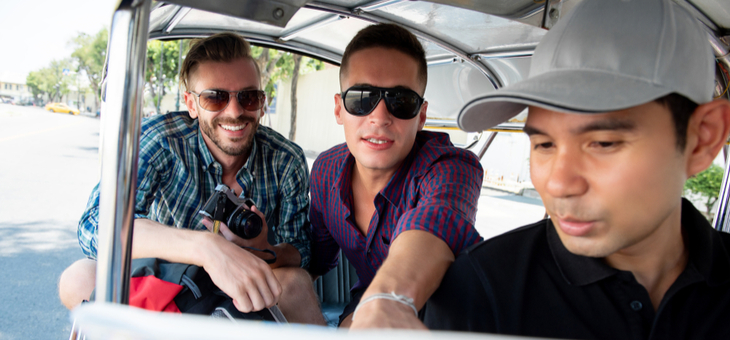Travelling has a number of negative effects on local people. It can raise the costs of living, strain local resource use, increase pollution, lead to habitat loss and disrupt local cultures. Ethical tourism is becoming a far more common priority for Aussie travellers. Yet while we turn our focus towards mitigating the environmental and economic effects of our travel, it’s important that we are also aware of our social impact on locals. To make things simple, fodors.com has compiled a list of things that we should all avoid saying when we travel.
“The locals are so happy, even though they have so little.”
Have you heard of the term ‘poverty porn’? It perpetuates the idea that we can find inspiration in the comparative suffering of others. The generalisation that locals are happy, despite having fewer material goods, is both condescending and plays into the myth of the noble savage. The truth is, many of the faces you see when travelling overseas are those working in the tourism industry, who, like in any other industry, are expected to put their best self forward at work.
“English is the universal language. Locals should know how to speak it.”
This imperialistic mantra is all too commonly heard overseas. When we expect people from different countries to learn a foreign language, we often overlook the social and cultural implications. Firstly, it suggests that our language is worth learning and that theirs is not. Secondly, we may not consider the costs of education required to learn a language, and how this may cut many locals out of the tourism industry. While this statement may come from the desire to communicate with local people, it is more than likely to place you on their bad side.
“Our money keeps the economy afloat, so locals should show us respect.”
By assuming that having money buys us respect, we are also implying that a lack of money means a lack of respect. Money spent while overseas does not always make it to the hands of the locals, so we may not be having the direct positive effect we’d like to imagine.
“The locals see us as walking money bags. I worked hard to get here.”
While most of us work hard and save up to afford our travels, the difference in circumstances between us and locals can’t be ignored. The cost of your plane tickets may cost more than a local can earn in a month, or even a year. Travel may not be a luxury they can afford. While you’re on holiday, it’s important to remember that the locals are not.
“If you want the authentic experience …”
While we may all like to think that we’re having the real experience, and like to fantasise that locals don’t notice our presence, the other tourists don’t exist and that we ourselves are not tourists, this couldn’t be further from the truth. The reality is, popular destinations are likely to have an increase in tourist-focused development. Hotels, restaurants and tourism-focused businesses will set up in desirable locations, the convenience of which is often overlooked by travellers.
“It’s not fair that I should pay more than locals!”
There’s no denying that we pay more for goods and services than the locals, especially when travelling in the Global South. But when we spend more money in a few days while on holiday than they earn in a month, we can see how tourist taxes, both official and unofficial, are ways to even out the scale.
“I come here so often I’m practically a local.”
I once met an older Australian man in Thailand. He had been returning to the same village for more than 20 years and was close to a few of the families who lived there. Having no grandchildren of his own, he had paid for the educations of about 15 kids who lived there. I was younger at the time and made an offhand joke about how he was “basically a local”. He got quite serious and explained that no matter how much he loved a place, or how close he was to the locals, his ability to leave the country should things get tough meant he had a privilege that they didn’t. “You have to have lived it to call yourself a local. It undermines them for me to pick and choose the parts I want or don’t want.”
If you enjoy our content, don’t keep it to yourself. Share our free eNews with your friends and encourage them to sign up.
Related articles:
Trying the world’s worst delicacies
Be brave, travel your way
Cheap destinations for solo travel

